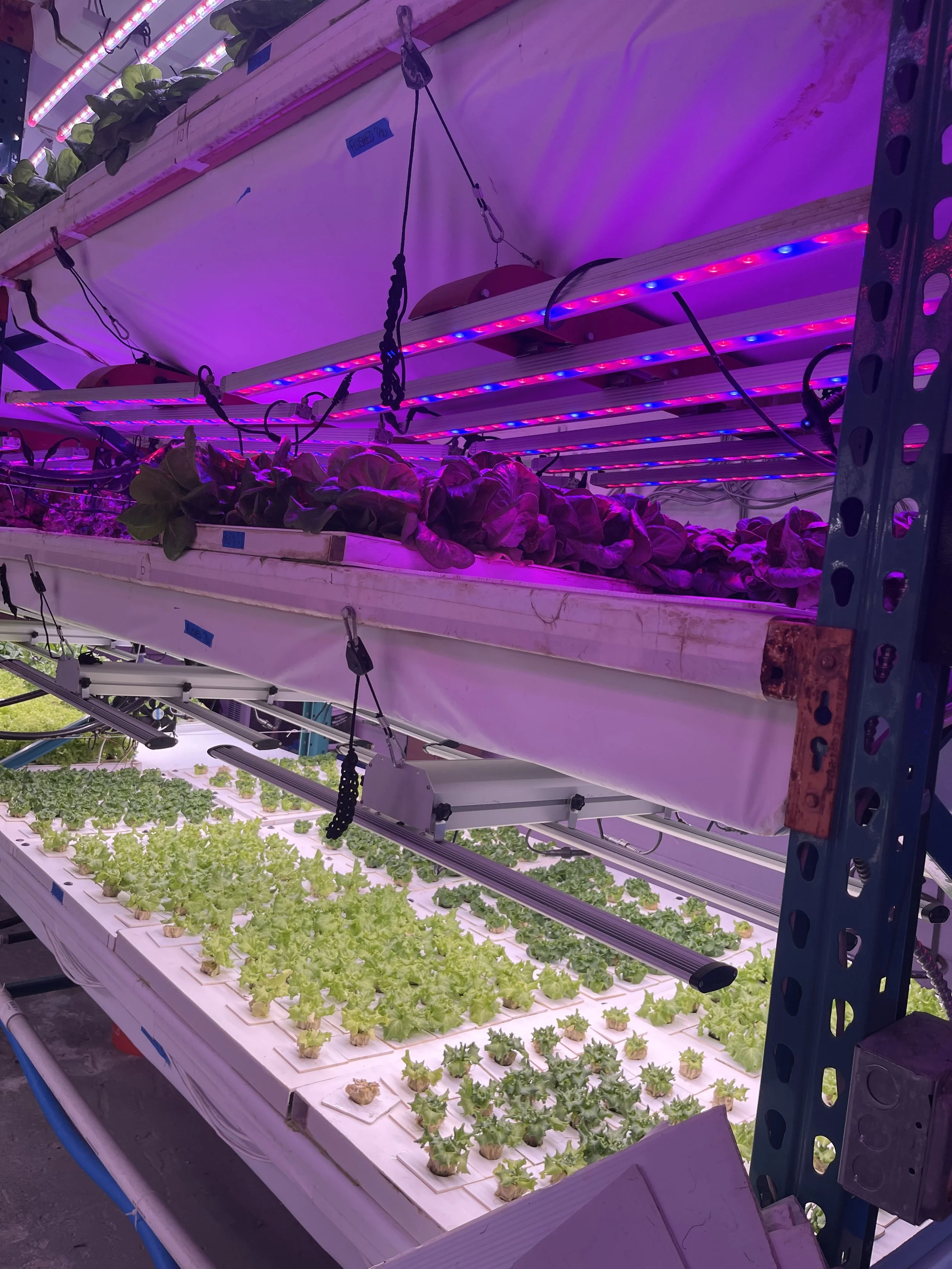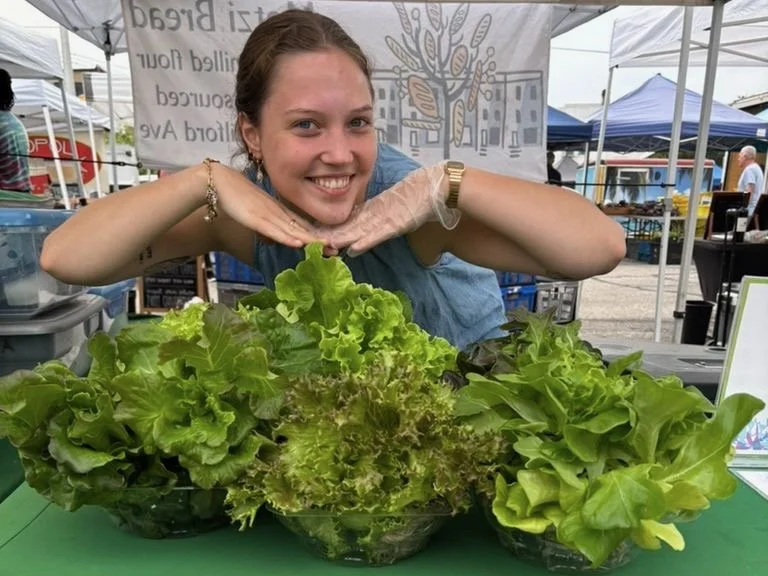Who Needs Dirt?
Make it stand out
Whatever it is, the way you tell your story online can make all the difference.
—Stephanie Shapiro has been a Market regular for nearly 40 years. She lives in Tuxedo Park with husband Tom and dog Archie.
—Dominic Uccellini inspects his hydroponic Living Lettuce operation, prepping for salesperson Julia Mair to sell at the Market. You won’t find a speck of it at the Living Lettuce booth on Saturday mornings or at Alluvion Aeroponics, a high-rise community in a West Baltimore industrial park where 30,000 lettuce, basil and micro-green plants grow together peacefully year round.
Instead of soil, the plants, suspended in the air on trays, thrive on oxygen, nutrient-dense water and LED lighting from seedling until maturity, when they’re ready for the 32nd Street Farmers Market and other regional outlets.
Dominic Uccellini started Alluvion in his parents’ garage six years ago, combining the principles of hydroponics and vertical farming to grow healthy, pesticide-free plants more efficiently than with soil-bound agricultural practices. He has since expanded to a large warehouse space where he has built two 18-foot steel structures that each support six levels of plants.
In a burgeoning field that has yet to establish industry standards, Dominic is a pioneer. “That’s what attracted me to the whole endeavor—the unknown. Basically there isn’t a set formula for doing all these things,” he says.
Ultimately Dominic wants to expand further, but for now his farm serves as a lab where he’s constantly adjusting a zillion variables in search of a profitable model while producing pristine heads of oak leaf, Batavia, Salanova and more than 10 other varieties of “living lettuce.”
The right scale for a successful aeroponics operation has yet to be determined, Dominic says. “It’s still an evolving industry basically because it’s hard to compete against sunlight [essential to conventional farming] because those farmers are not paying for electricity.” Alluvion is just breaking even, but that’s still better than some multi-million dollar aeroponics startups that have failed, he says.
With support from the BMoreAg Foundation, a group that promotes urban sustainable agriculture among young people, Alluvion and its small staff moved four years ago from a smaller downtown Baltimore space to its current location.
Visitors to the towering workspace quickly discover that they’re not at old McDonald’s farm anymore. Multi-colored LED lighting and timed misters nurture plants with dangling root systems that resemble long blonde tresses. An elaborate system of pipes, pumps, water tanks, air ducts and electrical switchboards, synched on a computer by Dominic, make the farm go.
Plants begin life as seeds inserted into square plugs of rock wool. Once they’ve established a root system, they’re transferred to trays that are moved to the farm’s upper levels as they spread out and require less intense lighting. Water infused with nutrients and purified by a reverse osmosis filter recycles continuously through the farm’s network to hydrate the plants. After about seven weeks, each crop is harvested and packaged according to destination.
Much of the basil, grown in profusion at Alluvion, becomes pesto made by Dominic’s mother, Susan Uccellini that is coveted by farmers market customers. She also helps her son with the accounting. “I wouldn’t have been able to do it without her,” Dominic says. His father, Louis, can also be depended on in an emergency, he says.
Alluvion sends about 3000 plants a week to farmers markets, Graul’s and Eddie’s supermarkets and Lancaster Farm-Fresh Co-Op, which sells to The Corner Pantry and assorted grocery stores. But direct sales are the most profitable for Alluvion, Dominic says. “If I could have eight 32nd Street Markets, that would be fantastic.”









